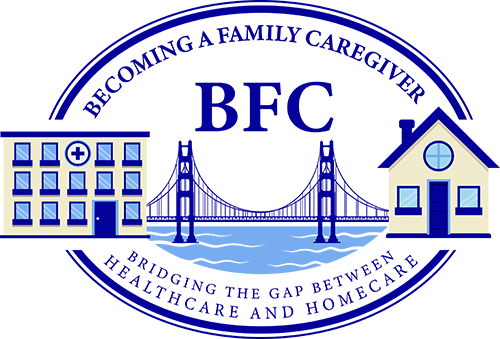Virginia Financial Assistance Programs
Virginia meets the unique needs of the young and the elderly in separate Medicaid programs. Though the groups have many needs in common, each separate age group has special challenges and struggles that require services designed specifically for their age. The Children’s Health Insurance Program (CHIP) and Commonwealth Coordinated Care Plus Medicaid provide services to eligible Virginians as resources allow. A summary follows with contact information on how to access greater detail on their website.
Children’s Health Insurance Program (CHIP)
(Children’s Medicaid) Overview
CHIP, Medicaid, Family Access to Medical Insurance Security (FAMIS), and FAMIS Plus cover doctor visits, check-ups, tests, mental health, prescriptions, shots, and other health services. Dental coverage is available under CHIP and Medicaid through Smiles for Children, a program that utilizes a network of providers that families must choose from when seeking dental care for their children if they want that care to be covered.
Eligibility Requirements for FAMIS
- Live in Virginia.
- Have U.S. citizenship or be a qualified non-citizen.
- Be younger than 19 years of age.
- Have a gross monthly household income under roughly 200 percent of the federal poverty level.
To apply, call 1-855-242-8282 or contact the local Department of Social Services.
Services Covered by CHIP & FAMIS
CHIP in the United States covers many medically necessary treatments and preventative services. The following are services covered by CHIP benefits:
- Doctor’s appointments and check-ups
- Immunization shots
- Prescription drugs
- Hospital stays
- Emergency services and transportation
- Dental care
- Vision and hearing exams
- Physical therapy
While CHIP and Medicaid are different programs, most cover the same services. The program covers other medical treatments not listed above, including medical equipment like inhalers and diabetes testing kits. However, Medicaid for children may cover more services like non-emergency medical transport that CHIP may not cover. FAMIS does not cover alternative medicine treatments.
Difference Between CHIP & FAMIS
The primary difference between CHIP/Medicaid and FAMIS/FAMIS Plus is that those enrolled in FAMIS must make small co-payments for certain health care services.
Commonwealth Coordinated Care Plus Medicaid (CCC Plus or CCC+)
Virginia offers Medicaid through a mandatory managed care program called Commonwealth Coordinated Care Plus Medicaid. If someone wants Medicaid, they have no choice but to participate in CCC Plus. In addition, all nursing homes, medical, behavioral health, and a variety of home and community-based services for elderly and disabled individuals at risk for admission to a long-term care facility receive services from CCC Plus as part of the Waiver program.
The home and community-based services may also include personal care services, adult daycare, personal emergency response systems, and home modifications. Though most services provided by the network come through licensed providers, the Waiver program allows persons receiving home care to hire their caregivers, such as family members (other than parents or spouses), to care for the at-risk individual.
Unfortunately, meeting eligibility for the Waiver program does not mean automatic access. Slots for services are limited. Therefore, waiting lists are common.
Services Provided
The CCC+ Waiver program provides the following services based on an individual care plan established for each applicant. Participants may live in their own home or a family member’s but cannot live in an assisted living facility, adult foster care home, or long-term care residence.
- Care coordination,
- Medical benefits, such as preventative care, physician appointments, laboratory work, x-rays, and hospitalization,
- Mental health benefits,
- Durable medical equipment,
- A variety of long-term services and supports (LTSS) to prevent the nursing home placement
- Adult Day Health Care (daytime supervision, personal care assistance, and health services in a community-based group setting)
- Assistive Technology
- Community Transition Services to assist with relocating to a private residence from a nursing home (i.e., covering a security deposit and utility set-up fees, moving expenses, purchasing essential household items)
- Home Modifications, also called environmental modifications (i.e., widening of doorways for wheelchair access, the addition of grab bars, installing a ramp)
- Personal Care Assistance (assistance with daily living activities, such as bathing, dressing, eating, transferring, and toileting)
- Personal Emergency Response System
- Private Duty Nursing
- Respite Care (short-term care to relieve a primary caregiver)
Eligibility Requirements
Age 65+years old or under the age of 65 and disabled and who meet the following criteria.
Income:
The applicant’s income is limited to 300% of the Federal Benefit Rate (FBR adjusted annually in January). In 2022, the rate was $841 for individuals and $1,261 for couples. However, several optional rules may affect the amount an individual or couple may need. Consult a Medicaid planner for assistance).
Assets:
In 2022, the asset limit is $2,000 for a single applicant. For married couples with both spouses as applicants, the asset limit is $4,000. When only one spouse is an applicant, the assets of both the applicant and non-applicant spouse are limited. However, the non-applicant spouse receives a larger portion of the assets to prevent spousal impoverishment. In this case, the applicant spouse can retain up to $2,000 in assets, and the non-applicant spouse can keep up to $137,400.
Assets should not be sold under fair market value or given away within 60-months of submitting a Medicaid application. Doing so may cause Medicaid to question motives for the action under the look-back rule resulting in a penalty period of Medicaid ineligibility.
Home Ownership:
Virginia Medicaid considers the primary place of residence an exemption under assets for Medicaid eligibility provided the applicant or spouse lives in the home or intends to return to live in the home, has a child of any age who is disabled or blind living in the home, or has a dependent child under 21 living in the home.
Medical Criteria: Functional Need
Applicants must meet requirements established for either a nursing facility or hospital level of care under the Virginia Uniform Assessment Instrument (UAI) to qualify for Medicaid. The UAI measures an individual’s ability to perform activities of daily living along with the impact of their living situation, physical health, and behavioral issues. In addition, the hospital level of care requires the need for a medical device such as a mechanical ventilator or another device necessary to prevent death or increased disability.
Application Process
To apply for CCC Plus Waiver, contact the Virginia Department of Social Services in your area or call the CCC Plus Helpline at 1-844-374-9159.

